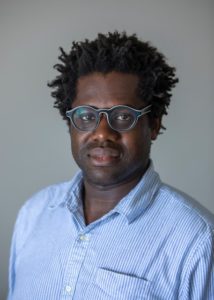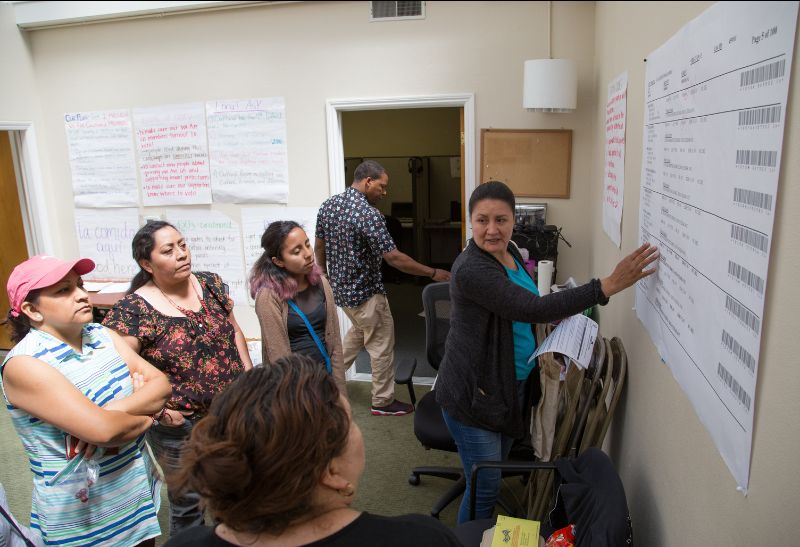Mixed teams and mixed leadership will bring authentic solutions to the endemic problems we face in our social system

As 2021 comes in to play, we need to be honest with ourselves. 2020 was a year that challenged, traumatized, and took loved ones. For those left behind, 2020 provided resilience and scars. It was also the culmination of approximately 40 years of a neo-liberal economic model that has dominated our socio-economic development strategies.
Today, COVID-19 has shined a light on a myriad of unintended consequences of these policies: inequality, social division, low trust in authority, a focus on identity, and much more.
In my work with colleagues, we’ve pursued a strategy we describe as “Mixed Teams and Mixed Leadership.” What this means is valuing the insight and expertise of life experiences and different stories that drive our society, equally with learned, academic and professional expertise.
Today, we are primarily led and dominated by an educated, professionalized elite made up of mainly technocrats. While this drove value for 40 years, it is now starting to show diminishing returns. I am not arguing against the fact that following a higher degree, professional career, and signing up to be a knowledge worker is a bad thing. Rather I just think we get even more value from knowledge workers when they are lined up with non-knowledge workers.
Whether it’s the failure to tackle growing inequality, the free-market approach to technology companies that has allowed them to flourish without proper oversight, or the dogmatic drive to push people into higher education rather than recognize their diverse preferences and aptitudes, this technocratic system of development has clearly failed too many.
Mixed teams and mixed leadership means recognizing and valuing people’s lived experience. Studies have shown that those with lived experience act as a necessary conduit between services and communities, allowing them to influence culture and provide a heightened utility. We can harness people’s experience of crime, homelessness, low wage work or poor education to share knowledge, develop research, and produce policies and programs to tackle these issues. This requires people with both lived experience and a strategic orientation, acting systematically, and confidence that allows them to engage with anyone.
I have tried to deliver mixed teams and mixed leadership in my work . Below are some key parts of the approach coupled with real-life examples.
- Deep thinking, research and planning is key: Community Researchers at The Social Innovation Partnership (Supported by Impact on Urban Health and Wellcome Trust – the second largest Foundation in the World) used a model that allowed us to tap into the cultural nuances of the local community, providing us with an insider approach to data gathering around COVID-19 experiences. The outcome of this work is richer research delivered by local people, and giving those very people a stake in the production of knowledge in their communities.
- Building advisory teams and space to engage strategically : Project Signal uses a data collaborative method that allows stakeholders to address the challenges and needs of the unemployed. This model gives opportunity and space to other organizations like employers and government workforce development boards to contribute data in real-time. The outcome of this work is worker voice and perspective is injected into the work and informs what data Community Development Organisations collect – when you ask workers what they want to see in training programs the answers are powerful, examples include a demand for mentoring / coaching into work and even looking towards the next role, or a request for help to navigate the ‘games’ that some HR functions can play / use to filter out ‘trainees’.
This creates effective tools and services to help individuals acquire new credentials, skills and a higher standard of living. The work is ongoing and the insights from workers are remarkable. Their views will lay the foundation for a “Data Trust” that will be soaked in the insight of workers and hopefully inform what professionals will do.
- Driving Mixed Teams/Mixed Leadership to influence the flow of capital: JFF Fund is a community-led investment fund that will work with companies to solve business problems in a way that benefits workers and communities equally. JFF partnered with our team at Turning Basin Labs to conduct field research by asking workers themselves to play key roles in a participatory, community-driven research process to develop an investment fund that can support the growth of worker-centric employment models.
This work is ongoing in California. Contact us at @TBasinLabs on Twitter if you would like to partner with us.
- Thinking about sustainability and COOP ownership: Turning Basin Labs itself is a cooperative business that provides ownership to our most prolific workers, including profit share and access to essential benefits. Thanks to startup support from The Irvine Foundation (and further support from Kendeda and Philanthropic Ventures Foundation and others) TBL is focused on shared ownership, inclusion and growth, which we believe is the future of work. A clear example of us offering ownership is our partnership with JVS where through completing an Earn and Learn Bookkeeping training and 8 weeks placement, workers end up with skills, a pathway to work, and ownership in our agency.
TBL’s offer to employers is to use a service that hosts workers as W2 employees of TBL while they move from contract to contract. We believe that harnessing the shared ownership model for our workers is the path to re-wiring a fairer economy. Our work is finding that workers can add value to the sustainability and strategy of businesses, as our friends at JFF have written about, and as we explored at this event with former California Labor Secretary Julie Su.
Using models such as the above, it is clear that the idea of diversity in lived experience truly has a plethora of benefits. By recognizing the varying challenges each of us face, we are able to harness an approach that helps people secure a better quality of life through building inclusive frameworks.
 Stephen Bediako OBE is the Executive Chair of The Social Innovation Partnership in London, England. He is also the Managing Director and co-founder of Turning Basin Labs and co-founder of the Bay Area based Path Group. Stephen recently received an Order of the British Empire honor in the 2021 Queens New Honours List for services in innovation in charity and social enterprise.
Stephen Bediako OBE is the Executive Chair of The Social Innovation Partnership in London, England. He is also the Managing Director and co-founder of Turning Basin Labs and co-founder of the Bay Area based Path Group. Stephen recently received an Order of the British Empire honor in the 2021 Queens New Honours List for services in innovation in charity and social enterprise.

